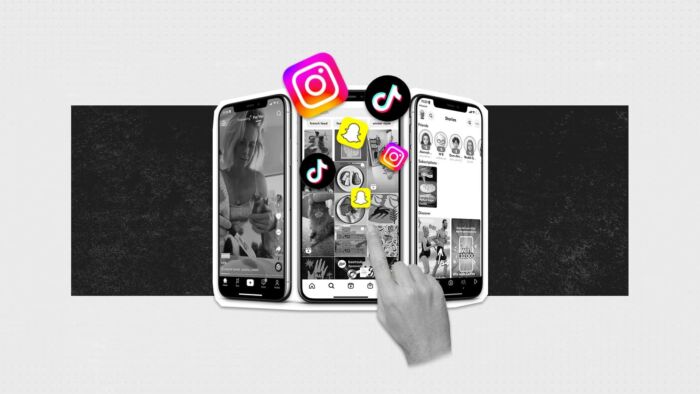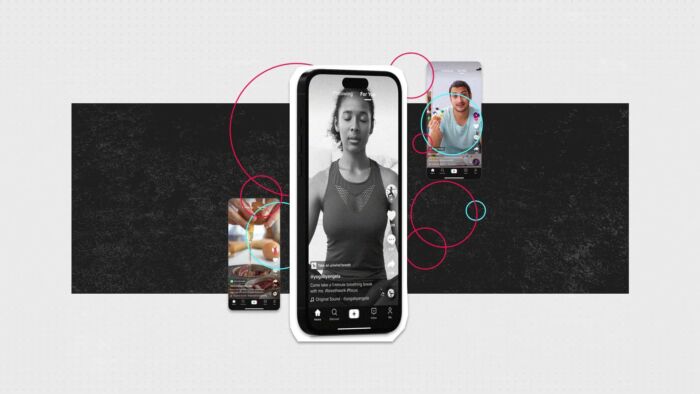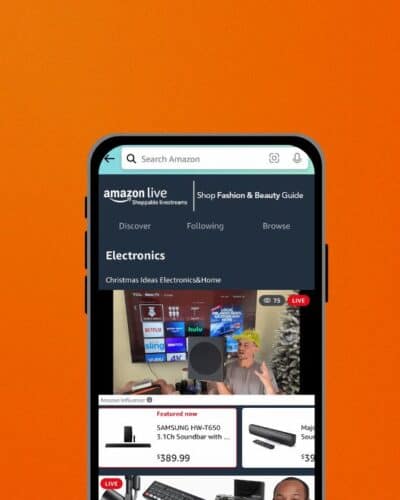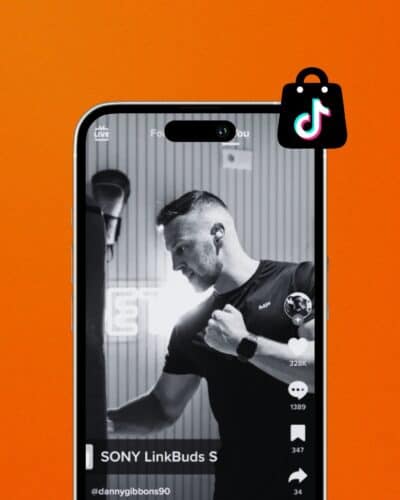Is there a difference between social media and entertainment, or have the two mediums combined to form a new definition for platforms in the sector?
Where do the definitions lie with platforms such as Snapchat, YouTube and Instagram? And what about TikTok?
Algorithms are defining social media platforms today by dictating what we see across each app. With that in mind, it’s apparent that social content now is more aligned with entertainment than it is about keeping in touch with friends. What does this mean for the broader social space, and how should we approach these platforms given this shift?

What is TikTok, an Entertainment App or Social Media Platform?
We’re at the stage now where it’s less about the connections we make online and more about the content we’re distributing. The heavy rollout of short-form video underlines this, suggesting creators that focus on entertaining the masses are more likely to find success than those centered on updating their followers.
Thanks to research from Omida, we can see that TikTok has surpassed Netflix as the second-most popular app with under 35’s. The platform is also predicted to become the most popular destination for video consumption within the year, when last year, TikTok trailed Facebook by less than a minute in average viewing time.
The insurmountable rise of TikTok, of course, has changed the course of the social space. Platforms like YouTube, Instagram and Facebook are guilty of replicating the short-form video format, highlighting the feeling within the industry that there is a certain style and format that cannot be ignored.
This is where the lines blur a little. Is TikTok an entertainment platform or an entertainment channel, and if it is the latter, and other platforms are replicating its style, does that mean the essence of ‘social’ media is dying?
The consideration from many thought leaders is that TikTok is far from a social platform and, for what it’s worth, the platform itself considers itself to be of the entertainment persuasion.
So, now that we’ve settled that debate, it’s time to look at how we can approach platforms with this new perspective in mind.
Redefining The Social Network
TikTok’s approach to the social game is like nothing we’ve ever seen before. Its model is unique, in that it looks more like a media company that distributes content, rather than a social network focused on facilitating peer-to-peer interaction.
Due to the platform’s success, other platforms are looking at way they can conjure similar results for themselves. Instagram’s stab at short-from came with Reels, Snapchat with Spotlight and YouTube with Shorts. The implementation of full-screen, vertical-scrolling video underlines how we’re now less driven by who we know and more by what’s driving the engagement.
The concept of social media as an entertainment outlet is not new. Rewind to 2010, data from Edelman showed that 73% of 18-24 year olds and 50% of 35-49 year olds viewed social networking sites as a form of entertainment. The majority of respondents indicated that social media offered more entertainment value than music, gaming and television companies.
This time it’s different. TikTok strikes with one defining factor that previous operators failed to capitalise on – its algorithm.
Through the power of AI-recommended content, TikTok plays host to millions of people who are looking for and creating quality video content, within an endless loop that keeps you fixated on scrolling.
That formula is the reason why TikTok is placed amongst the social media apps, rather than thrown in with the traditional entertainment apps. The rush TikTok’s users receive when discovering new content is likened to the same dopamine release achieved through updates from friends and family on Facebook in years gone by. The difference is, TikTok is offering users the thrill of discovering something new, in a participatory community.

Increasing Demand for Creators Underlines Shift Toward Entertainment
The transition from social network to entertainment outlet is highlighted in conversation around ‘influencers’ and ‘creators’ – the people that brands want to work with.
Today, an influencer is seen in the same light as a celebrity, with more of a closer connection than your typical A Lister. The rise of the creator pays dividends to those who are more authentic. Audiences can sense the distinction between influencer and creator. The demand now lies with the creator due to this new expectancy for authenticity.
TikTok has played an integral role here. The platform has its Creator Marketplace, aiding brands in partnerships with the right talent. It also has its Creator Fund, which helps content creators earn money for their efforts based on content engagement, although this hasn’t been too well received in the past.
It’s through these channels that creators can become their own brands, which is good news for brands, because while marketers are used to creating polished ads, TikTok is a different breed.

While entertainment occupies a large portion of TikTok’s presence, education and awareness are prominent mediums too. This change in perspective is critical, and marketers should be open to switching their metrics for success.
The demand for creators points towards the industry shift we mentioned, an alignment for platforms to hone in on authentic entertainment, which enables brand marketers to identify new opportunities to strategise using the redefined ’social’ network.
– –
And that’s all for this week, but don’t forget to follow us on LinkedIn, Instagram, TikTok and Twitter for real-time announcements of all our new blog content!





